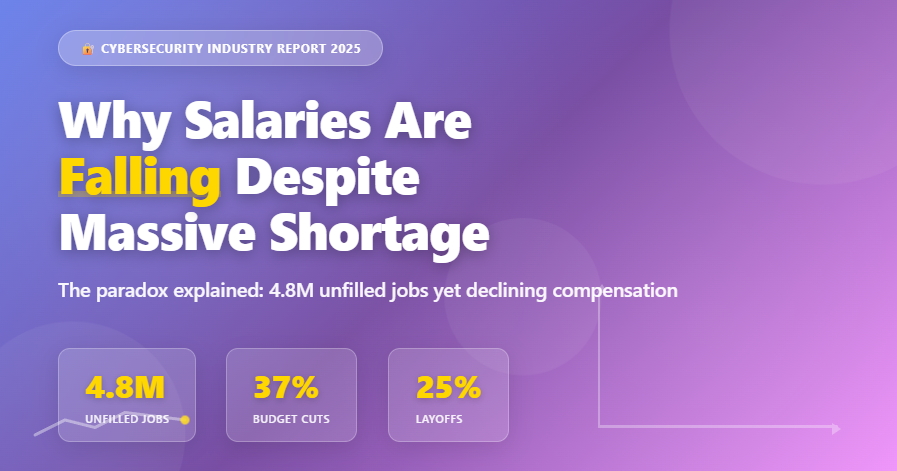Top 7 Methods to Stop Your VPN from Leaking IP Addresses

Here are the top 7 methods to stop your VPN from leaking IP addresses and protect your online privacy:
- Use a Reliable VPN: Choose a VPN with strong encryption, a no-logs policy, and built-in leak protection features.
- Enable Kill Switch: This feature disconnects your internet if the VPN connection drops, preventing accidental IP exposure.
- Perform Regular Leak Tests: Use online tools to check for DNS, WebRTC, and IP leaks while connected to your VPN.
- Disable WebRTC in Browsers: WebRTC can expose your real IP address. Disable it in your browser settings or use browser extensions to block it.
- Configure DNS Settings: Use your VPN’s DNS servers instead of your ISP’s to avoid DNS leaks.
- Update VPN Software: Keep your VPN software up to date to ensure it has the latest security patches.
- Avoid Free VPNs: Free VPNs often lack robust security features and may compromise your privacy.
The provided steps will help users protect their privacy together with their online security.
What are the risks of IP leaks while using a VPN?
VPN users face severe risks because IP leaks through their VPN connection destroys the privacy protection and security benefits that VPNs are intended to deliver. Here are the main risks:
- Revealing Your True Location: Your real IP address can expose your geographical location, making it easy for websites or hackers to pinpoint where you are.
- Tracking Your Online Activities: Advertisers, governments, or malicious actors could track your browsing habits and build a detailed profile of your online behavior.
- Bypassing Geoblocks: If you’re using a VPN to access restricted content, an IP leak could reveal your actual location and block your access.
- Targeted Cyberattacks: An exposed IP address can make you vulnerable to targeted attacks, such as DDoS attacks or hacking attempts.
- Legal and Ethical Issues: In regions with strict internet laws, leaking your IP while bypassing censorship or accessing restricted content could result in penalties or surveillance.
- Data Privacy Violations: Your ISP or other third parties might collect and sell your data if your VPN leaks your real IP.
- Weakened Trust: If you’re engaged in sensitive activities (e.g., journalism, whistleblowing), an IP leak could jeopardize your safety and trustworthiness.
Your VPN protection will be strengthened by implementing leak protection features together with regular leak testing and implementing best practices such as enabling kill switches and disabling WebRTC.
What can I do to prevent IP leaks while using a VPN?
To prevent IP leaks while using a VPN, you can take several proactive measures to safeguard your privacy:
- Select a Trusted VPN: Choose a well-established VPN provider that offers built-in leak protection for DNS, WebRTC, and IPv6.
- Enable the Kill Switch: Make sure the kill switch feature is activated to instantly cut off your internet if the VPN connection drops, preventing any data exposure.
- Conduct Regular Leak Tests: Use online tools to check for IP, DNS, and WebRTC leaks while connected to your VPN.
- Disable WebRTC in Browsers: WebRTC can expose your real IP address, so disable it in your browser settings or use browser extensions to block it.
- Use Secure DNS Servers: Configure your VPN to use its own DNS servers, ensuring that DNS requests do not leak to your ISP.
- Update Your VPN Software: Regularly update your VPN client to have the latest security features and patches.
- Disable IPv6: If your VPN does not support IPv6, disable IPv6 traffic on your device to prevent potential leaks.
- Avoid Split Tunneling for Sensitive Apps: Only route sensitive applications and websites through your VPN connection to keep their data secure.
- Use Firewalls: Set up firewall rules to ensure all internet traffic is routed through your VPN, blocking any traffic outside the VPN tunnel.
- Avoid Free VPNs: Free VPNs often lack robust leak protection and may compromise your privacy.
Multiple security precautions will lower your IP leak risk and strengthen your online protection.
What are advanced VPN settings for privacy?
At the advanced level of VPN configuration users achieve greater protections for their privacy and security. These advanced VPN settings include specific functionalities you can implement:
- Multi-Hop VPN (Double VPN): This routes your connection through two or more servers, adding layers of encryption and making it harder to track your activity.
- Obfuscated Servers: Use obfuscation to disguise your VPN traffic as regular internet traffic, bypassing censorship and VPN detection in restrictive regions.
- Custom DNS Configuration: Set your VPN to use secure DNS servers, such as those provided by your VPN or trusted third-party options like Cloudflare or Google DNS, to avoid DNS leaks.
- Encryption Protocols: Opt for advanced protocols like WireGuard, OpenVPN, or IKEv2/IPSec for enhanced encryption and faster speeds.
- Split Tunneling: Control which traffic goes through the VPN and which doesn’t. Configure this wisely to ensure sensitive data always stays within the VPN tunnel.
- Disable IPv6: If your VPN doesn’t support IPv6, disable it on your device to prevent leaks, as some VPNs only encrypt IPv4 traffic.
- Custom Firewall Rules: Set up rules to route all your traffic through the VPN and block internet access for apps or systems not using the VPN.
- Advanced Kill Switch Options: Some VPNs allow granular control over kill switch settings, ensuring specific apps or systems are always protected.
- Port Forwarding: Customize the port your VPN uses to bypass firewalls or improve connection stability while maintaining security.
- Privacy Audits: Choose VPN providers that allow you to review transparency reports and undergo third-party audits for confidence in their practices.
Users who set these VPN settings appropriately achieve the best level of privacy protection during VPN usage.
Can you explain how to set up Multi-Hop VPN?
You can establish Multi-Hop VPN (also known as Double VPN) by directing your connection through at least two servers to achieve better privacy and security. Here’s a step-by-step guide:
1. Choose a VPN That Supports Multi-Hop
Not all VPNs offer Multi-Hop functionality. Some trusted providers like NordVPN (with “Double VPN”) and Surfshark (with “MultiHop”) have this feature built-in.
2. Download and Install the VPN
- Visit the official website of your chosen VPN provider.
- Download the VPN client for your device (Windows, macOS, Android, iOS, etc.).
- Install it following the on-screen instructions.
3. Log In to Your VPN Account
Open the VPN application and log in using your credentials.
4. Locate Multi-Hop/Double VPN Option
- Look for the “Multi-Hop” or “Double VPN” feature in the VPN’s settings or server list.
- This might be listed under “Specialty Servers” or “Advanced Features,” depending on the provider.
5. Select a Multi-Hop Server Pair
- Multi-Hop routes your connection through two servers in different locations.
- For example, you could choose a path like Japan → Germany for added privacy.
- Some VPNs automatically choose the server pair, while others let you customize it.
6. Enable the Multi-Hop Connection
- Click or toggle the Multi-Hop feature on.
- Confirm that you’re connected to the Multi-Hop server pair.
7. Test Your Multi-Hop Connection
- Use online tools (e.g., IPLeak.net, DNSLeakTest.com) to verify that your connection is secure.
- Ensure that your real IP address is not exposed and traffic is routing through both servers.
Benefits of Multi-Hop VPN:
- Enhanced anonymity by hiding your traffic through multiple layers.
- Extra protection against surveillance or targeted attacks.
- Ideal for users in high-risk environments or under strict censorship.
What are practical examples of using Split Tunneling?
The beneficial VPN function enables users to determine which applications and sites should connect through the VPN network yet which others should reach the internet directly. A real-world application of split tunneling benefits involves the following situations:
Streaming Services:
- You should enable split tunneling to direct streaming applications away from the VPN so you can access domestic content libraries safely protect your browser activities from inside the VPN network.
Online Banking:
- Configure your banking apps to bypass the VPN so that they don’t flag your connection as suspicious when accessing them from a foreign server.
Local Devices and Services:
- If you’re on a VPN server located outside your country, you can exclude local devices (like printers or smart home devices) from using the VPN to ensure seamless connectivity.
Gaming:
- Use split tunneling to bypass the VPN for gaming apps to improve latency while routing other traffic through the VPN for privacy.
Accessing Geo-Restricted Content:
- Route specific browser tabs through the VPN to access geo-restricted content while letting other apps work with your standard internet connection.
Work vs. Personal Activities:
- If you’re using a VPN for work purposes, you can ensure your work-related apps and websites use the VPN while personal applications bypass it for speed.
Secure Downloads:
- Use split tunneling to route torrenting or P2P apps through the VPN for encryption while leaving regular browsing outside the VPN for faster access.
Testing Website Performance:
- The split tunneling function enables you to view search results from your area openly while still enjoying your VPN security for other web connections.
These examples show how split tunneling allows you to balance privacy, performance, and functionality effectively.
How do current VPN technologies compare in terms of privacy?
Current VPN technologies vary significantly in terms of privacy features, encryption protocols, and overall security. Here’s a comparison based on recent insights:
Encryption Protocols:
- Advanced protocols like WireGuard and OpenVPN are widely regarded for their robust encryption and speed.
- Older protocols like PPTP are less secure and should generally be avoided.
Privacy Policies:
- VPNs based in countries outside the Five Eyes, Nine Eyes, and Fourteen Eyes alliances offer better privacy protection, as they are not subject to data-sharing agreements.
- Providers like ProtonVPN emphasize a strict no-logs policy, ensuring user data is not stored.
Special Features:
- Multi-Hop VPNs (e.g., NordVPN’s Double VPN) route traffic through multiple servers for added privacy.
- Obfuscated Servers help bypass censorship and VPN detection in restrictive regions.
Transparency:
- VPNs that undergo independent audits or publish transparency reports, like ExpressVPN and Surfshark, provide greater trustworthiness.
Server Locations:
- VPNs with extensive server networks offer better options for location spoofing and faster connections.
Free vs. Paid VPNs:
- Free VPNs often lack robust privacy features and may log user data, whereas paid VPNs typically offer stronger security measures.
Explain the importance of encryption standards in VPNs.
Encryption standards are the backbone of a VPN’s ability to secure your online activities and protect your privacy. Here’s why they’re so important:
- Data Protection: VPNs encrypt data before transmitting it over the internet. Strong encryption, such as AES-256, makes it nearly impossible for hackers or malicious entities to decipher your information, safeguarding sensitive data like passwords, financial details, and personal messages.
- Privacy from ISPs and Governments: Encryption prevents Internet Service Providers (ISPs) or government surveillance from monitoring your online activities. Even if they intercept the traffic, they see only unreadable ciphertext.
- Secure Public Wi-Fi Use: Public Wi-Fi networks are notorious for their security vulnerabilities. Encryption ensures your data remains secure even on untrusted networks, mitigating risks like man-in-the-middle attacks.
- Bypassing Geo-Restrictions: Encryption helps mask your real IP address and makes it harder for platforms to track or block your connection based on location, enabling access to restricted content.
- Preventing Data Tampering: Encryption ensures that data sent and received remains unaltered. Without it, attackers could intercept and modify data packets, leading to fraud or misinformation.
- Industry Trust and Compliance: Strong encryption standards meet global cybersecurity benchmarks and are often required for compliance with regulations like GDPR or HIPAA.
The security intensity of VPN depends entirely on its encryption system. Modern digital landscapes require stronger encryption levels for providing maximum protection to users.
How does encryption affect VPN performance?
Encryption plays a crucial role in securing your VPN connection, but it can have an impact on performance. Here’s how:
1. Processing Power Demand
AES-256 encryption method demands significant computational power both for encryption and decryption processes. Slower internet performance and decreased speed become major issues when processing power is insufficient because of strong encryption algorithms. WireGuard presents itself as a modern VPN protocol designed to resolve this performance issue through its lightweight and efficient structure.
2. Increased Latency
Rate building occurs between data encryption and decryption operations which introduces steps to network communication. When you use a VPN server located at a far distance the encryption process creates longer data travel time or latency.
3. Bandwidth Overhead
Encrypted data packets are larger due to the encryption process. This means more data is transmitted, which can slightly reduce your effective bandwidth.
4. Encryption Protocol
The decision between encryption protocols determines users’ security measures while affecting the speed of the connection. OpenVPN provides strong security but performance runs slower than WireGuard’s newer protocol which delivers both fast speeds along with robust encryption.
5. Server Load
On crowded VPN servers, the encryption and decryption tasks can strain server resources, further impacting performance.
6. Balancing Security and Speed
- Many VPNs let you adjust encryption levels or choose faster protocols if speed is a priority.
- High-quality providers optimize server infrastructure and use efficient algorithms to minimize performance losses while maintaining robust security.
How do popular VPN services handle encryption and performance?
Popular VPN services utilize multiple advanced technologies and optimization strategies to manage encryption features together with performance optimization. Major VPN service providers deal with encryption and performance through specific technological and optimization strategies as displayed in this short review:
- NordVPN: Known for its use of AES-256 encryption and support for the WireGuard-based NordLynx protocol, NordVPN offers a balance of top-notch security and high-speed performance. It also includes features like double VPN for added privacy.
- ExpressVPN: This service uses AES-256 encryption and its proprietary Lightway protocol, designed for faster connections without compromising security. It’s optimized for streaming and gaming.
- Surfshark: Surfshark employs AES-256 encryption and supports WireGuard for speed and security. It also offers features like multi-hop and CleanWeb to block ads and trackers.
- ProtonVPN: Focused on privacy, ProtonVPN uses AES-256 encryption and supports Secure Core, which routes traffic through multiple servers for enhanced anonymity. It’s a strong choice for users prioritizing privacy.
- CyberGhost: This VPN uses AES-256 encryption and offers optimized servers for streaming and torrenting. It supports WireGuard for better performance.
Each of these providers balances encryption strength with performance by leveraging modern protocols like WireGuard or proprietary solutions.
Can you explain the difference between OpenVPN and WireGuard?
Certainly! OpenVPN and WireGuard are two popular VPN protocols, each with distinct features:
OpenVPN
- Established Protocol: OpenVPN has been around for years and is widely trusted for its reliability and security.
- Encryption: It uses configurable encryption levels, including AES-256, making it highly secure.
- Flexibility: Supports both TCP and UDP protocols, allowing for stable or faster connections depending on the use case.
- Compatibility: Works on a wide range of devices and operating systems.
- Performance: While secure, OpenVPN can be slower due to its older architecture and extensive encryption processes.
WireGuard
- Modern Design: WireGuard is newer, designed for simplicity and efficiency.
- Speed: Known for its high performance and faster connection speeds compared to OpenVPN.
- Encryption: Uses state-of-the-art cryptographic algorithms for robust security.
- Lightweight Codebase: Its lean design makes it easier to audit and integrate into systems.
- Compatibility: While growing, it may not yet support as many devices as OpenVPN.
OpenVPN delivers advanced security but requires slower speeds whereas WireGuard provides fast speeds alongside modern features which make it an effective performance-enhancing tool.
Conclusion
Maintaining online security requires selection of a VPN that prevents IP address disclosure. Use a trustworthy VPN service while enabling key features including kill switch and regularly test leaks in addition to handling settings for WebRTC and secure DNS configurations. Modern software updates together with avoiding cost-free or untrusted VPN providers will enhance VPN performance while upholding your complete online confidentiality.
FAQs:
What is the easiest way to prevent VPN IP leaks?
Always use a trusted VPN that has built-in leak protection for DNS, IPv6, and WebRTC.
How can I test if my VPN is leaking?
Use online leak test tools like ipleak.net or dnsleaktest.com while connected to your VPN.
Does enabling the VPN kill switch help?
Yes! A kill switch instantly blocks your internet if the VPN connection drops, preventing any accidental IP exposure.
Should I disable IPv6 to stop leaks?
Absolutely. Most VPNs only secure IPv4 traffic, so disabling IPv6 manually can prevent hidden leaks.
How important is DNS leak protection?
Critical. Without DNS leak protection, your browsing requests might bypass the VPN and expose your real IP.
Loading newsletter form...







One Comment